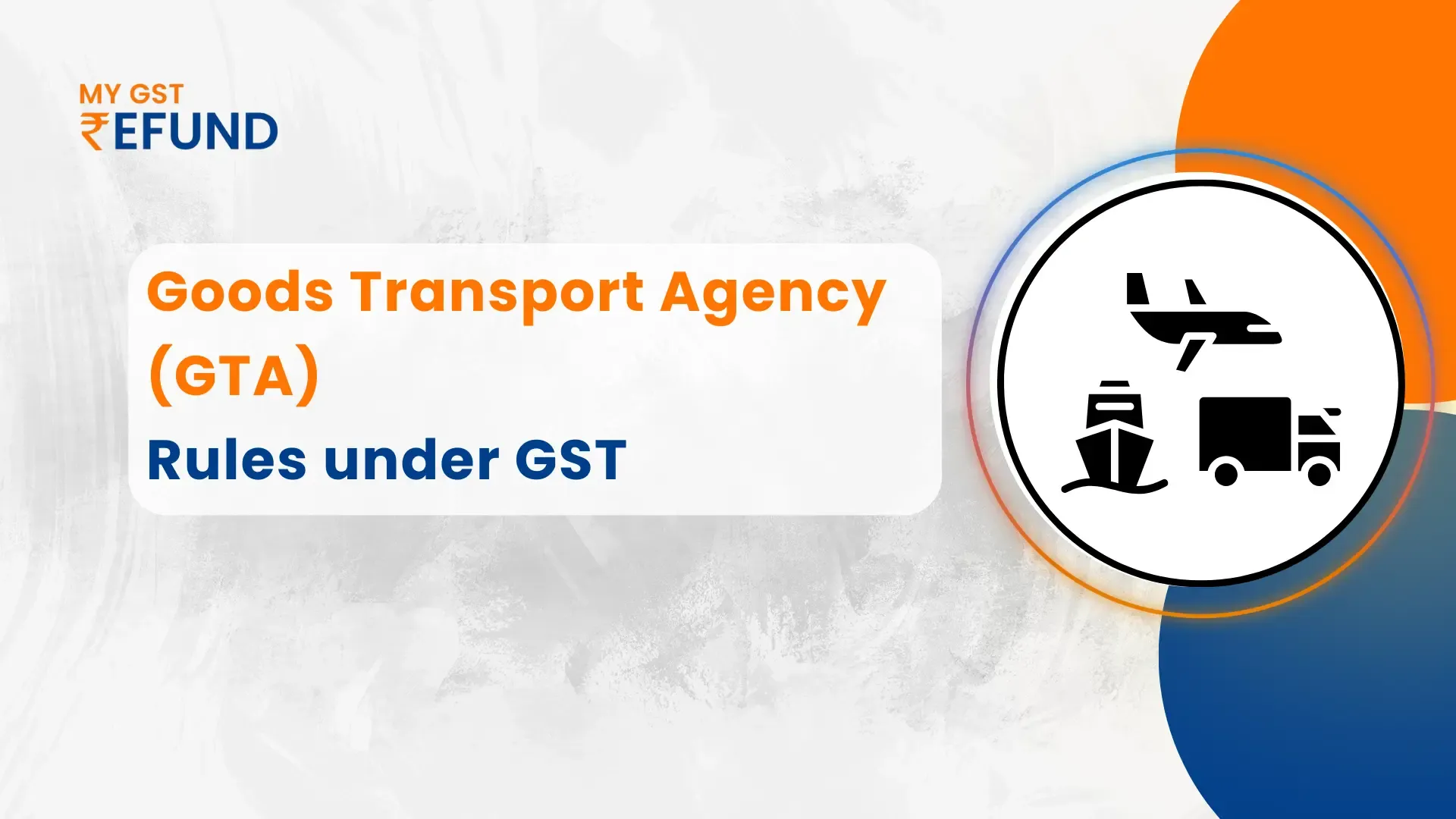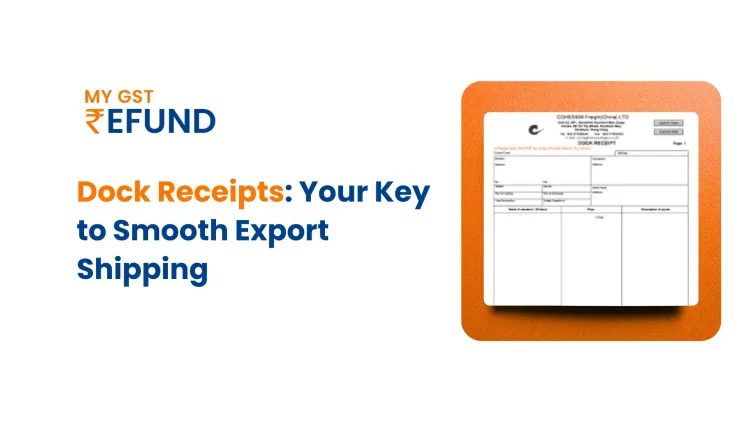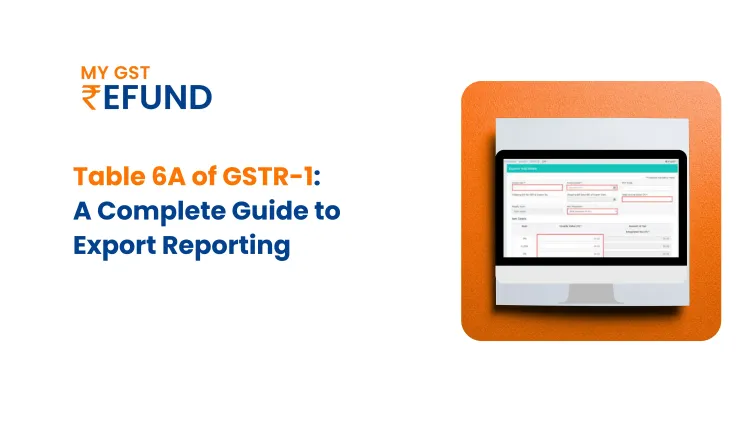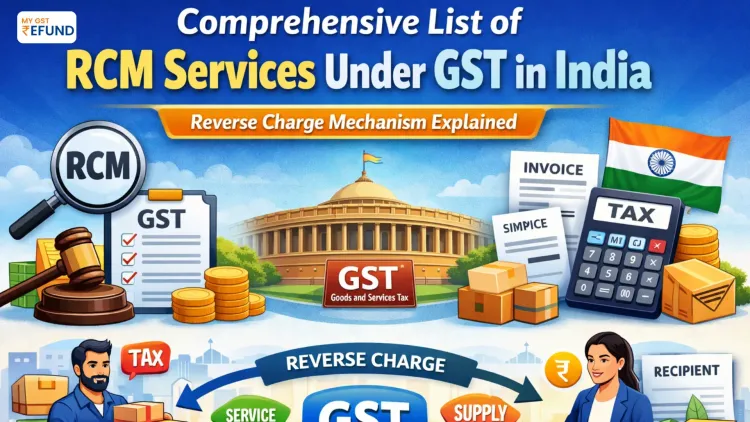GTA Rules under GST
Published on: Fri Sep 12 2025
Goods Transport Agency under GST
A Goods Transport Agency is a person who carries on the service of carriage of goods by road and gives a consignment note (by any name).
This is a vital identifying document, in that it is a receipt and evidence of the agreement for the carriage of the goods. A transporter that does not provide a consignment note is not a GTA for GST purposes.
Overview of the taxation of GTA under GST
Tax Liability: The tax liability for paying GST on GTA services generally lies with the recipient of the service (the business or individual who is hiring the GTA) under the Reverse Charge Mechanism (RCM).
GST Rates: There are primarily two GST rates for GTAs:
5% (without Input Tax Credit - ITC): The GST is paid by the recipient under RCM.
12% (with ITC): The GTA may choose to remit the GST themselves under a Forward Charge Mechanism and claim ITC on their expenditures (e.g., fuel, vehicle repairs).
Exemptions under GTA
Some GTA services are exempt from GST. They consist of the carriage of certain goods such as agricultural produce, milk, salt, foodgrains, newspapers, and relief supplies, and the carrying of second-hand household effects for personal use.
Hiring Vehicles: The hiring of a vehicle service to the GTA is also exempt from GST.
Registration: A GTA is not needed to register under GST if it only supplies services where the recipient is chargeable under RCM. But if they supply services to recipients who are not chargeable under RCM (such as an unregistered person or a household) and their turnover is above the limit, they need to register.
Why is GST required to be paid by GTA?
The following forms of goods transportation were exempt from the GST law:
- the road, with the exception -courier services and cargo transportation agencies
- by waterways inland.
As a result, goods transport agencies (GTAs) are subject to GST.
What are the services provided by a GTA?
The service involves not just the actual movement of goods, such as-
- Loading/unloading
- Packing/unpacking
- Trans-shipment
- Temporary warehousing etc
If all these services are incorporated and not done as independent activities, then they also fall under GTA.
Exemptions that are under the GTA Rules
Certain categories of goods, which are exempted from GST while being carried by a GTA, for instance, agricultural produce, milk, food grains (rice, pulses, flour), organic manure, newspaper/magazine registered with the Registrar, relief material, defence / military goods, etc.
Previously, there were threshold exemptions for small consignments:
- Single carriage (single consignment) if consideration ≤ ₹1,500
- For single consignee goods, if freight ≤ ₹750
Recent History of the Threshold Exemptions
On 18 July 2022, those thresholds (₹1,500 for single carriage, ₹750 for single consignee) were abolished through Notification No. 04/2022-CT(R).
Thus, even low-value transportation / small consignments previously enjoying the exemption are now subject to GST under GTA rules.
Tax Rate Structure & ITC Alternatives for GTA
- GTA services are subject to 5% taxation without the ITC or 12% taxation with the ITC.
- The rate must be chosen by the GTA at the start of the fiscal year.
Recent Proposals and Changes (including the 56th GST Council)
Starting on September 22, 2025, the 56th GST Council suggested rationalizing rates for a number of goods and services.
| Aspect | Forward Charge Mechanism (FCM) | Reverse Charge Mechanism (RCM) |
|---|---|---|
| Who Charges GST | GTA charges GST on invoice | Recipient (consignor/consignee) pays GST directly |
| Applicable Rate | 5% (without ITC) or 12% (with ITC) | Usually 5% under RCM |
| ITC Availability | - 5%: No ITC to GTA- 12%: ITC available to recipient | Recipient can claim ITC of GST paid |
| Conditions | - GTA must be registered- GTA must opt for forward charge- Must specify 12% with ITC or 5% without ITC | - Recipient must be liable under RCM- GTA may remain unregistered |
| Billing Responsibility | GTA issues invoice with GST | GTA issues invoice without GST (recipient self-pays GST) |
Recent Updates of the 56th GST Council (3 Sept 2025)
The GST rate regime has been rationalised: the previous four slabs (5%, 12%, 18%, 28%) are being substituted largely by two principal slabs - 5% (merit) and 18% (normal). An increased 40% rate is suggested for certain "luxury & sin" items.
Alterations (for the majority of goods & services) will come into force from 22 September 2025.
For "sin goods" (such as pan masala, gutkha, cigarettes, unmanufactured tobacco, bidi, etc.), the pre-revised rates + compensation cess will persist up to the extinction of certain compensation cess liabilities.
In the transportation/logistics industry, the voluntary rate structure for GTA is specified to be in line with services being charged at 5% without ITC, or at higher rates (18%) with ITC.
Key Concepts
Forward Charge Mechanism (FCM): GTA itself pays GST. Invoices contain GST. GTA can pay 5% without ITC or 12% with ITC.
Reverse Charge Mechanism (RCM): If GTA does not have a forward charge, then certain recipients (factories, registered persons, etc.) pay GST in reverse charge (usually 5% without ITC on the GTA side). The recipient can claim ITC if the conditions are fulfilled.
Note-GTA should submit a declaration (Annexure-V) before the financial year to avail FCM. Once an option is exercised, it remains available for that financial year.
Key Uncertainties & Challenges
- Exemptions for services to unregistered persons
- Previously, services rendered by a GTA to unregistered persons (including casual taxable persons) were specifically exempted under Notification No. 12/2017 (Central Tax - Rate), entry 21A.
Deadlines / Filing of Forward Charge Option (Annexure V)
- The GTA shall file Annexure V (declaration) for opting for payment of GST under the Forward Charge Mechanism (FCM) for a specific financial year.
Original deadline: 15th March of the previous financial year. For instance, in FY 2023-24, the deadline was 15 March 2023.
Extensions occur: For instance, in respect of FY 2023-24, CBIC extended the deadline from 15 March 2023 to 31 May 2023 by Notification No. 05/2023 - Central Tax.
- For new GTAs, varying time limits are applicable: they can receive 45 days from application for registration or one month from the date of the certificate to submit the option.
After the option has been exercised, it will usually not be capable of being withdrawn within that financial year.
Frequently Asked Questions
Q1.What precisely constitutes a Goods Transport Agency (GTA) under GST?
A GTA is an individual who arranges the transport of goods by road and gives a consignment note (or equivalent document, for instance, waybill, goods receipt). If the transporter doesn't give such a document, then they are not a GTA under GST.
Q2.What are the GST rate alternatives for GTA services?
• If GTA chooses the Forward Charge Mechanism (FCM): they can opt
-5% GST without Input Tax Credit (ITC) or
-12% GST with ITC.
Q3.Who will pay GST on GTA services -GTA or the recipient (Forward Charge vs Reverse Charge)?
Under Forward Charge: GTA self-charge and self-remit GST themselves (at any rate they desire) and draw an invoice accordingly.
Under Reverse Charge: Unless GTA chooses to go for Forward Charge, the recipient (one of the particular service recipients, i.e., registered persons, factories, societies, etc.) pays 5%. GTA does not charge GST in such a situation.
Q4.What are the exemptions under GTA rules?
Some items are exempt when being carried by GTAs: agricultural products, milk, food grains (rice, pulses, flour), organic manure, newspapers/magazines registered with the Registrar, relief items, and defense/military supplies.
Previously, there were threshold exemptions for small shipments: if the freight for one carriage was ≤ ₹1,500, or all items for one consignee were ≤ ₹750. These have been revoked from 18 July 2022 through Notification No. 4/2022-CT(R).
Q5.How and when can a GTA choose Forward Charge (declaration, timelines)?
Timeline: 15th March of the previous financial year in most cases. In FY 2023-24, this was amended to 31st May 2023. In case of new registrants, different timelines are applicable (e.g., 45 days from registration application or one month from GST certificate).
Q6.What are GTAs' invoicing requirements?
The invoice has to reflect the rate of GST (5% without ITC or 12% with ITC) prominently.
Q7.How is input tax credit (ITC) maximized or lost based on the rate or charge mechanism one adopts?
- When GTA adopts 12% under Forward Charge, it can claim ITC on all payable input goods/services (fuel, repairs, maintenance, etc.), which lowers net tax cost.
- If GTA selects 5% ITC, then ITC is not available-input costs become a burden.
Related Posts





